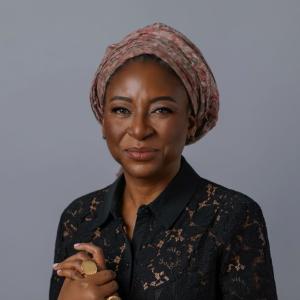Friday, 11 August 2023
Your Excellency Mr Miguel Marques Gonçalves, Minister of Transport and Communications,
Your Excellency Ms Elvina de Sousa Carvalho, Secretary of State for Equality,
Distinguished ambassadors, representatives of diplomatic missions, and development partners,
My UN colleagues including ITU Regional Director Dr Atsuko Okuda,
Esteemed representatives of civil society,
Honoured members of the media,
Ladies and Gentlemen,
Bom dia and a very good morning to you all.
I am delighted to join you today as the UN Resident Coordinator, to recognise and acknowledge the Government of Timor-Leste, and in particular the National Communications Authority, for their tremendous efforts and commendable progress in advancing the digital landscape of the country.
As we gather here today, we must acknowledge that the world is at the height of the Fourth Industrial Revolution, a world where digital proficiency is no longer an asset, but a necessity.
Our future will be increasingly digital, interconnected, and complex. In this context, the need for inclusivity, particularly in empowering girls and women in this digital world, is of utmost importance. Their participation in this multiplying digital ecosystem will not only contribute to their personal growth, but it will also catalyze socio-economic development, foster innovation, and help build a more equitable society.
The United Nations, with its unique global reach and comprehensive developmental perspective, is ideally placed to support countries like Timor-Leste in this endeavour. Our strength lies in our broad network of specialized agencies, funds, and programmes, all dedicated to supporting member states, including Timor-Leste in achieving the Sustainable Development Goals. The UN's comparative advantage is the ability to convene stakeholders, build partnerships, provide technical expertise, and support policy development – all in service of empowering girls for the digital future.
Through our ITU, the International Telecommunication Union, we have been driving advancements in ICT infrastructure. The ITU's work in developing international standards, managing the global radio-frequency spectrum, and fostering ICT development in underserved communities, is critical to ensuring digital inclusion. We see the fruits of such efforts here in Timor-Leste.
Our other UN agencies like the UN Office for Project Services (UNOPS), United Nations Children's Fund (UNICEF), United Nations Development Programme (UNDP), UN Women, and United Nations Educational, Scientific, and Cultural Organization (UNESCO) have played instrumental roles in Timor-Leste’s digital journey.
With UNOPS, we have supported the creation of essential ICT infrastructure, whereas through UNICEF, we have enabled access to digital learning resources for children, especially girls. The work of UNDP in digital innovation, governance, and poverty reduction has made technology a significant driver of development. UN Women has tirelessly championed digital gender equality, providing training and resources to ensure that girls are not left behind in this digital revolution. Meanwhile, UNESCO's work in enhancing digital literacy, fostering digital creativity, and leveraging ICT for sustainable development has equipped young girls with skills for the digital age.
So, how can girls prepare for their future in this digital world? The answer lies in digital literacy and education, in empowerment and inclusivity. We must continue our collective efforts to provide girls with access to quality digital education and training. We need to create an environment where girls are encouraged to explore technology, where they see themselves as creators, innovators, and leaders in the digital world.
We must also ensure online safety for girls and protect their digital rights, so that they can leverage the internet and digital tools without fear. Let us pledge to build a future where every girl, in every corner of Timor-Leste, can seize the opportunities of the digital world.
I would like to reiterate the commitment of the United Nations to continue its support for Timor-Leste in achieving digital inclusivity and gender equality. It is a path that is not without its challenges, but with the collective effort of the Government of Timor-Leste, UN agencies, and all stakeholders, I am confident we can shape a digital future that empowers all, especially our girls.
Let us move forward together for a more inclusive, equitable, and digitally empowered Timor-Leste.
Thank you.




